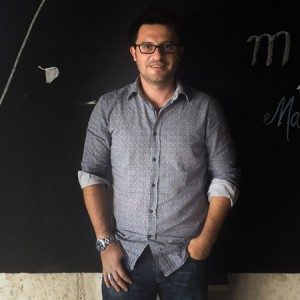- Published on
My name is Mihai Corlan and I am a product manager currently working on Android apps at Bitdefender. I live in Bucharest, Romania.
How did you become a product manager at Bitdefender, what is your background?
I joined Bitdefender at the end of 2014. Before that I worked at Adobe doing evangelism. After 7 years of evangelism I was more than sure that product management is what I want to do for the foreseeable future and out of all the options I had to choose from the Bitdefender one looked like the best one. It is interesting that many of the evangelists I know took the same path at some point - that is getting into product management, not joining Bitdefender.
Where did you study? Looking back, would you recommend your path to beginners?
My career path is not as straightforward as one might think. I first got in love with computers when I was in the sixth grade: using a programming language called Logo I managed to draw a hydrogen atom using only lines. I still remember the feeling when I finally got the code to do what I had in my mind. Top of the world would be an understatement.
After this I kinda stayed around computers but not really dedicating my dreams to them. I ended up studying tourism and services (this means lots of marketing, economics, and law classes). During my second year I discovered the Internet and webpages (it was around ’97-’98) and this is when I knew that I want to work in the software industry. Next thing I know I was studying economics during the day and during the evenings learning how to create webpages. Before graduating I was already making money as a web designer. From web design I jumped to web development. In 2006, the startup I was working for got acquired by Adobe and for the next two years I worked as a Java developer. In 2008 I won the ticket lottery so to speak and joined the Adobe evangelism team.
Looking back at what I’ve done I can say that every single thing I did aligns very well with a facet of what a product manager has to know and has to do. It almost feels like it was a long, long training to become a product manager.
I don’t know whether it is the best path for becoming a product manager or not. All I know is that in our business there is one skill that you can’t survive without it: you have to know how to learn new things and you have to keep yourself hungry, curious to do it over and over again. The rest is just an implementation detail...
What are the books and weblogs helped you to improve your professional skills?
I read a lot but I can’t say that the bulk is represented by books. I read far more articles and watch recordings than reading books. The system I use is pretty simple: almost every single day I open NetNewsWire, take a quick look at the new articles and decide if they are of interest or not (I have close to 100 websites/blogs). The ones that are interesting I usually finish reading by the end of the day. Another source of good articles is the people I follow on Twitter or Facebook or the recommendations I get from my colleagues.
What is your ideal work environment? Do you work at studio or prefer to mix a few activities?
My ideal work environment is a quiet one with lots of natural light! Unfortunately the quiet part is hard to find in the open spaces most companies use these days. So I invested in a good pair of headphones and I have a dedicated playlist for working hours. I also love working from home when I really don’t need others input.
Who are the developers, colleagues you admire most?
Wow, this is a tricky question because I met so many great people in my career and it would be impossible to name everyone!
Instead of naming them let me share with you something that it took me awhile to realise. You know those kung fu movies where a wise master takes on a not so wise pupil and after a lot of work and time the pupil finally becomes a master?
Well, I was looking too to find my master like so many other young professionals. Unfortunately this model doesn’t translate well into our world. Most likely because no pupil is really willing to put down the time and effort necessary to master something. We all want to take a shortcut like a 20-day course or 3-year school. When you look at the master-pupil model it is about a life-time model.
Instead, what I find to work well for me is to keep my eyes open and discover the uni-masters around me. What do I mean by uni-master? A uni-master is someone who does one thing better than me; he might do other things better but it would be a long call to call him a master. Hence the uni-master term.
This is how I got to be better with writing code, communication, coping with stress, presenting, making a presentation, interviewing people, learning new stuff, and so forth.
The second thing you need is to be honest about your strengths and weaknesses. When you know what you want to improve or learn, sooner or later you’ll find your master.
